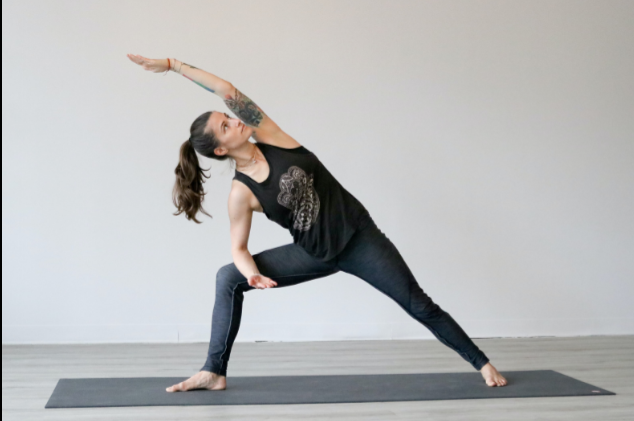
Yoga is an ancient exercise originating from India several thousands of years ago, that combines poses, breathing, relaxation, and meditation benefiting mind and body wellness. A healthy state of mind helps the body to be at its optimum – where there’s a balance between the external and the internal conditions of the body. Total wellness may be rare because our current lifestyle is filled with challenges. These factors can be from the environment, our social life and, even technology. When stress becomes more than what we can handle there is pressure on our mental health and this may lead to anxiety and depression.
The World Health Organisation says mental health ‘is a state of wellbeing being in which an individual realizes his or her own abilities, can cope with the normal stresses in life, can work productively and…’ contribute to the community. We live in a world where there is always something to stress about – we worry about others’ perception of us, our employment situation, and our health status. We get anxious when we lose control of situations. This loss can lead to being unhappy and depress, if not alleviated on time.
Anxiety disorders are among the most common mental illnesses affecting millions of people around the world. Yoga can help you deal with this .
Benefits of yoga on mental health .
If you panic whenever you speak to a crowd, taking deep breaths before speaking may help soothe your nerves and help you be in control. Also you’re advised to focus on strength, capability to deliver the speech. This breathing technique is called pranayama in yoga. Deep breathing helps improves vital capacity – a measure of the maximum volume of air expelled from the lung after taking in deepest possible breaths. Pranayama aims to connect body and mind together, and supplies the body with oxygen while removing toxins. Deep breathing and mental focus help build endurance and optimize performance, and can induce calm.

Research reveals that movement therapy such as yoga is one great way to beat stress and can alleviate anxiety and depress while improving quality of life. This art of body movement is beyond attaining balance in maintaining poses. Yoga can improve your health on different levels. Its impact on the body is like other self-soothing techniques like relaxation and keeping company with family and friends.
Research shows yoga can ease stress by impeding the production of cortisol – the primary stress hormone – that influences the rate of serotonin (the neurotransmitter linked to depression). It is believed that yoga reduces the level of anxiety because it highlights the need of being present in the moment. In a report on the effect of yoga on stress response involving three groups of participants gave insight into the volunteers’ response to pain. One group was made up of yoga enthusiasts, the second was suffers of fibromyalgia (a disorder experts consider a stress-related illness that is characterized by hypersensitivity to pain) and the last was medically fit volunteers. The study concluded that participants with poor response to stress are also more susceptible to pain.
The group of fibromyalgia sufferers reported feeling pain at the lowest pressure levels than the others. While the group made of yoga practitioners reported tolerating pain to the highest degree. Also Magnetic Resonance Imaging (MRI) scan was incorporated into the study to monitor the brain function when the body is riddled with pain. The MRIs showed that yoga participants displayed the lowest pain-related brain activity in contrast to the fibromyalgia patients.
The study emphasizes the benefit of yoga as a practice that can help a person manage their stress and, also pain responses
Anxiety and depression can affect the quality of sleep. Studies reveal a connection between sleep apnea and mental health conditions like mood swings, anxiety and post-traumatic stress disorder and obsessive compulsive disorder.
Engaging in yoga increases the secretion of melatonin the compound that regulates sleep; you’d be able to fall asleep earlier, sleep for longer, and go back to sleep after waking up at night. Yoga can improve sleep quality, reduce anxiety and depression, and ensures better mental health.
We can conclude that engaging in any form of yoga benefits your overall physical, emotional and mental health state. Through the use of specific yoga poses, you gain flexibility and strength in your body. A 2014 Harvard study revealed that just three times a week yoga practice reduced anxiety in 89% of participants, 78% reported increased muscle tone and 74% of the volunteers experienced an overall more positive outlook towards life.
Yoga is actually a low-risk and high-yield pathway to health and wellness. This movement therapy can be combined with medications wellness. Yoga is relatively safe but there are some complex poses which aren’t beginner friendly. People should engage in yoga exercises based on their personal preference and physical ability. However, the elderly and people with mobility challenges should seek medical practitioner’s advice before participating in yoga as a treatment option.










